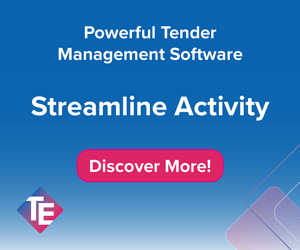I’ve worked in various industry sectors, including defense, technology, telecommunications, and consulting services. I’ve operated in these sectors as an individual contributor, a builder of capability, and a leader of high-performing teams. And throughout these engagements, I’ve performed with passion in the discipline of bids and proposals.
Along the way, I’ve observed the same four skills that influence the success of proposal writers, RFP specialists, bid managers, and other business-winning professionals. Are these skills even more influential than being an expert in the art and science of bids and proposals? Perhaps.
- The ability to lead without authority.
- A relentless focus on outcomes.
- Crisp communication.
- The art of resilience.
No matter our role in the bids and proposals profession, nurturing these four skills can take us from good to great. Pay these skills some attention now, and they’ll pay dividends on our next proposal gig. And throughout our careers!
Why Are These Skills Important?
The skills we demonstrate in our chosen discipline (bid manager, proposal writer, capture specialist, content manager) showcase our understanding and experience of applying a particular set of competencies to a task. These skills are typically acquired through training and education. They’re easy to define and measure. Some people call these “hard skills”.
The skills that are the focus of this article are not quite so easy to measure. And while they’re easy to define, they don’t necessarily come easy to everybody. Yet every time we engage with a colleague (subject matter expert, senior leader, account manager) or a client (buyer, recommender, decision-maker) we have an opportunity to influence (lead without authority), drive innovation (focus on outcomes), censor our language (crisp communication), and bounce back from setbacks (demonstrate resilience). Some people call these “soft skills”.
Hard Skills Versus Soft Skills
They’re not mutually exclusive. Actually, we need both if we’re to thrive! So-called “soft skills” are human skills. They’re essential skills. They’re how skills. They are skills that connect what we do (we craft a proposal) to why we do it (to win some business). And according to the World Economic Forum (WEF), it is “how skills” such as leadership, innovation, and resilience that are amongst the top ten skills of tomorrow.
Four Skills For Better Bidding
So here they are! Four skills for better bidding. These aren’t the only “how skills” to practice. But they’re a great start based on my own experiences and observations of working with bid and proposals professionals who made the leap from good to great.
Leading Without Authority
The ability to lead without direct authority is one of the most important “how skills” for bid and proposal professionals to harness. And it draws heavily on the other three skills outlined in this article.
Consider our ability to control, understand and apply our emotions positively to help resolve conflict, overcome challenges, and empathize with colleagues. These are all aspects of our emotional intelligence (aka emotional quotient or “EQ”). Our emotional intelligence helps us make informed decisions, turn intent into action, and form strong relationships. They’re all attributes of good leadership, with or without direct authority.

Use emotional intelligence to inspire, apply expertise to influence, and cultivate relationships for impact.
Leading without authority is about turning our colleagues into teammates. You need to inspire them, influence them, and have an impact on them. But how?
Use our emotional intelligence to inspire confidence and create an environment of psychological safety. You are a subject matter expert! So, use our expertise in bids and proposals as a powerful way to influence those around us. Win hearts and minds using our relationships to create impact through accountability; this will foster an esprit de corps that trumps the utterances of any fun sponge.
Focusing On Outcomes
At the time of writing this article, #innovation has 38,763,630 followers on LinkedIn. Innovation is on the tip of every seller’s tongue. Many buyers offer additional scoring credits for “innovative” solutions. And I suspect, dear reader, you and I have both crafted many an “innovative” proposal. But how does one become truly innovative? And why haven’t I mentioned outcomes yet?
Innovation – just like value – is in the eye of the beholder. And both rely on outcomes. Deliver outcomes to create value that turns our prospects into paying clients or our colleagues into teammates. Deliver innovation, and we will achieve differentiated outcomes for our clients and teammates that will transform our ways of working. But how?
Do the following things to remain focused on outcomes. First and quite simply, don’t confuse outputs (crafting a proposal, drafting answers to RFP exam questions) with outcomes (winning a deal, persuading an evaluator). Second and most important, engage with empathy by thinking about what we want our colleagues and clients to say, think, feel and do differently. Use clarity and responsiveness to deliver innovative outcomes.
Business is clear that developing the right attitudes and attributes in people – such as resilience, respect, enthusiasm, and creativity – is just as important as academic or technical skills. In an ever more competitive jobs market, it is such qualities that will give our young talent a head start and also allow existing employees to progress to higher-skilled, better-paid roles – Neil Carberry, CEO, Recruitment & Employment Confederation
Crisp Communication
Merriam-Webster defines communication as: “a process by which information is exchanged between individuals through a common system of symbols, signs, or behavior“. To make the most of this exchange of information in whatever setting – crafting an executive summary, interviewing a subject matter expert, or a quick two minutes with a senior leader – we must be clear, purposeful, and relevant in our communications approach. But how?

Consider clarity, relevance, intent, style, and participants to crisp up our communications.
Engage with clarity to ensure that we’re clear and succinct in your communication. Avoid fluff, guff, geek, and weasel. Be intelligible and unambiguous. What do we need our teammates or client to know, feel and do as a consequence of communicating? Consider the relevance of what we’re communicating. What is the significance to the participant? Focus on the intent of your communication. Why are we initiating it? What do we want to be different as a result? Be clear on our purpose, whatever the communication method. What style of communication (professional, casual, written, verbal, social media, email) is needed to present ourselves and the subject matter in the most effective way? Consider the participants in the communication; know our audience and focus on the points that are most important to them.
The Art Of Resilience
Merriam-Webster defines resilience as: “the ability of something to return to its original shape after it has been pulled, stretched, pressed, bent“. Sound familiar? While our cousins in sales might experience peaks of pressure with end-of-month/quarter/year deadlines, bid and proposal professionals experience a steady stream of stress tied to immoveable client deadlines throughout the year.
Steve, you and your team really need to be in the office and stay late with the sales and sales support guys at quarter-end because it’s not good for their morale when they see you all leave the office early at half five in the evening – [redacted], Sales Manager
And a recent study on work-related stress, anxiety, or depression in Great Britain by the UK Health & Safety Executive highlights that challenges including tight deadlines, too much responsibility, and lack of managerial support account for 50% of all work-related ill-health in 2021. Sound familiar (again)?
Being resilient is about the extent to which we are free of worries, generally feeling calm and stable in our state of mind. It’s about how we deal with the challenges outlined above and how able we feel to bounce back from them. As bid and proposal professionals, we must sustain high levels of resilience. But how?
Start by maintaining perspective on whatever situation we find ourselves in. Manage negative thoughts to help us remain objective. Keep a check on our emotions to mitigate against making rash decisions. How we might feel if we spent most of our time resolving the situation, versus most of our time worrying about it? Be our authentic selves by heightening our sense of self-awareness. Practicing self-awareness helps us recognize our strengths and weaknesses, enhances critical thinking, improves decision-making, and helps us to nurture lasting relationships – whatever the outcome of the situation.
Bringing It All Together
There we have it! Four skills for better bidding no matter where you are in your career. I know these and other “how skills” are within reach of everybody. Applying The Power Of How to connect what we do to why we do it supercharges our impact on client outcomes and turns our colleagues into teammates.
According to the WEF, “half of us will need to reskill in the next five years, as the double-disruption of the economic impacts of the pandemic and increasing automation transforming jobs takes hold“.
So, start practicing the skills of tomorrow – problem-solving (a relentless focus on outcomes), self-management (the art of resilience), working with people (leading without authority), social influence (crisp communication) – today!
About The Author

Steven Coles, CPP.APMP is the leader of client success at Broadleaf Global, a services company that facilitates business outcomes for organizations and their people through The Power Of How. An APMP member in good standing since 2002, Steven is the 2022 Chair of APMP and has served the APMP UK chapter since 2017, most recently as the 2021 Chief Executive Officer. Steven is happy to be contacted via email and LinkedIn.



Join the Conversation